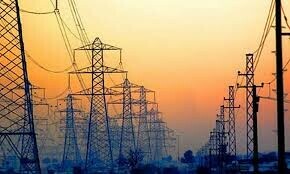ISLAMABAD: The global foreign direct investment (FDI) inflows in 2014 declined by 8 per cent to an estimated $1.26 trillion, due to the fragility of global economy and geo-political risks, according to the ‘Global Investment Trends Monitor’ on Wednesday.
For 2015, the report by United Nations Conference on Trade and Development (UNCTAD) adds that the fragility of the world economy, with growth tempered by hesitant consumer demand, volatility in currency markets and geopolitical instability will act as a deterrent for investors. The decline in commodity prices will also lower investments in the oil and gas and other commodity industries.
According to preliminary estimates, FDI flows to developed countries as a whole dropped by 14pc to $511 billion. FDI flows to the US fell to $86bn — almost a third of their 2013 level. Cross-border merger and acquisition (M&A) sales in the US declined from $60bn in 2013 to just $10bn in 2014, primarily due to the Verizon-Vodafone deal.
Japan continued to perform well, with FDI inflows rising to $10bn in 2014. Inflows to Canada declined by 26pc to $53bn as a result of a sharp fall in intra-company loans.
FDI flows in developing economies remained resilient in 2014, reaching more than $700bn, the highest level ever recorded, and accounting for 56pc of global FDI flows. The increase was mainly driven by developing Asia — the world’s largest recipient region — while Latin America saw its flows decline.
Although economic growth in developing Asia slowed down, preliminary estimates demonstrate that combined inflows to 40 economies in the region grew by an estimated 15pc to a historical level of around $492bn in 2014. Among the sub-regions East Asia, South-East Asia and South Asia experienced rapid increases in inflows, while those to West Asia dropped. Inflows to China amounted to an estimated $128bn, rising by about 3pc from 2013.
FDI flows to West Asia are estimated to have maintained their downward trend in 2014 for the sixth consecutive year, decreasing by around 4pc to $44bn. This is due to a further deterioration of the security situation in the region.
FDI remained sluggish also in the oil-rich Gulf Cooperation Council (GCC) countries, even though they have avoided large scale political unrest and enjoyed strong economic growth.
Cross-border M&As increased by 19pc to $384bn, its highest level since 2011, with strong performance in finance, pharmaceuticals, metals, and communications and media industries. The value of announced green-field investment increased by 3pc in 2014. Among major groupings, developing economies saw their green-field investment up by 7pc, developed economies remained flat with a decline of 1pc, and transition economies declined by 10pc.
Published in Dawn, January 29th, 2015
On a mobile phone? Get the Dawn Mobile App: Apple Store | Google Play











































